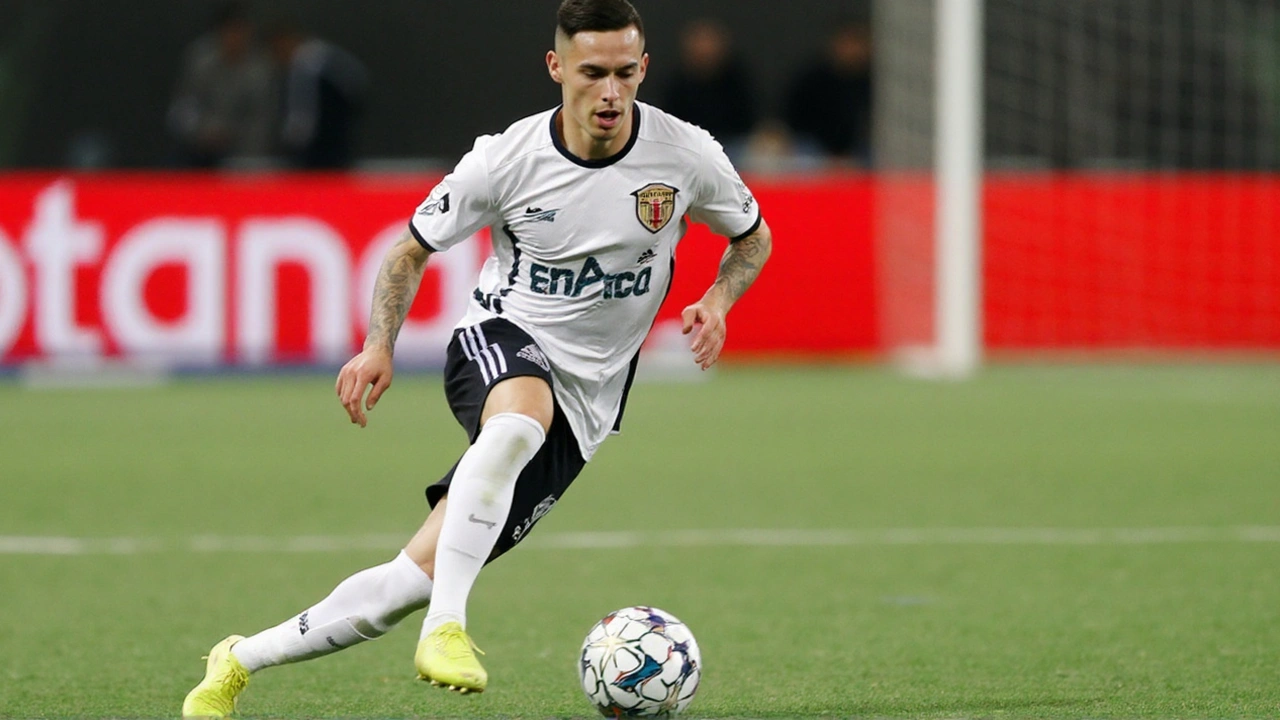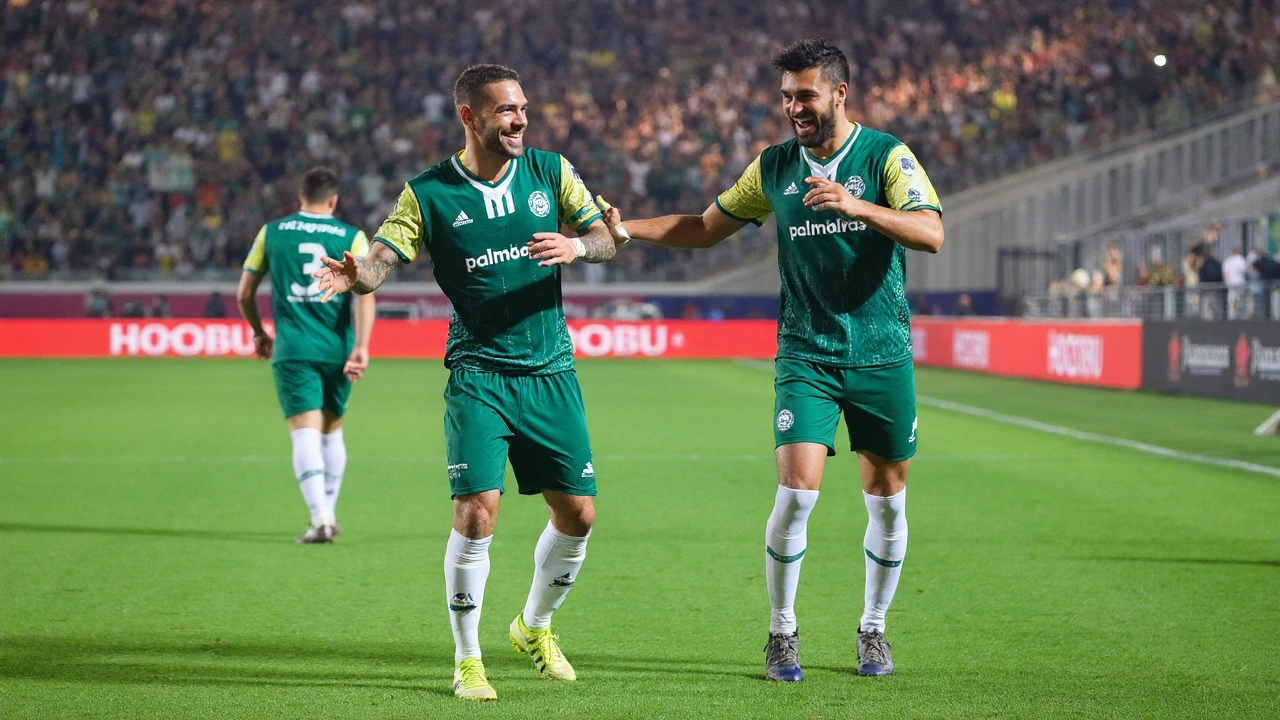A ruthless night in Lima
This one swung early and never swung back. At the Estadio Monumental in Lima, Palmeiras flattened Universitario 4-0 in the Copa Libertadores Round of 16 first leg, a result that leaves the defending champions with one foot in the quarter-finals and their hosts facing a mountain with no clear path up.
The key moment arrived in the 7th minute. Paraguayan center back William Riveros misjudged a ball in behind, clipped his man inside the box, and saw straight red. The referee pointed to the spot, Gómez rolled in the penalty with the calm of a veteran, and the tie tilted sharply toward the Brazilians before it had even started to breathe.
Six minutes later, the plan went from simple to brutal. López, alive to a loose second ball after a quick combination through the lines, took a steadying touch and finished low for 2-0. The away bench barely celebrated: there was more coming, and everyone in the stadium felt it.
Universitario tried to protect the middle and drop into a compact shell, but Palmeiras stretched them to both touchlines. The visitors moved the ball with patience, then stabbed when the gaps appeared. On 30 minutes, Vitor Roque darted across his defender to meet a driven pass and buried the third. No fuss, no frills—decisive movement, clean contact, and a clinical finish that underlined why the teenager is already tagged as a future star.
From there, it became game management and sharpness. Palmeiras didn’t rush. They recycled possession, pressed in short bursts, and picked their moments. Universitario, a man down and short on outlets, chased shadows. The fourth came late, on 75 minutes, when López slipped in behind again and clipped home his second of the night. A brace for the No. 9, and a scoreline that matched the control.
It’s easy to say the red card decided it, and yes, it set the tone. But the way Palmeiras handled the next 83 minutes told the real story. They did not lower their level after the first blow. They moved as a unit, kept their distances, and avoided cheap transitions. The back line stepped in at the right times, the midfield carried the ball past pressure instead of forcing risky passes, and the front three alternated runs to prevent any predictable patterns. Universitario rarely escaped their half with purpose.
The finishing mattered too. Gómez took his penalty with zero drama. López’s first was about instincts in the box; his second, about timing and composure. Vitor Roque’s goal came from a striker’s textbook: start on the blind shoulder, accelerate as the pass is released, attack the front zone. You can drill that all week, but you still need the nerve to pull it off on a big night. He did.
There were smaller battles inside the larger one. Palmeiras’ full-backs pushed high to pin Universitario’s wingers, which freed central midfielders to step into half-spaces without fear of counters down the flanks. When Universitario tried to go long, the first header was often contested and the second ball was almost always green. On set pieces, the visitors crowded the six-yard box, kept the deliveries tight, and forced defenders to face their own goal. Even when those chances didn’t fall, they ate up time and energy.
For Universitario, the task became survival. With Riveros gone early, the back line had to shuffle, the midfield had to run more without the ball, and any plan to press was shelved. Rodrigo Ureña’s injury compounded things; losing a ball-winner in a game like this means losing territory. The crowd did everything it could, but a man disadvantage against a team that circulates the ball this well is a slow squeeze. The hosts looked for counters through the channels, but there was little clean service into the front and even less support around it.
Palmeiras’ consistency in continental play showed up again. Big-game habits matter: control the tempo, punish errors, and keep the box locked. On nights like this, when the opponent is wounded, the best sides do not hesitate. They settle the tie early, then remove the risk. That’s exactly what happened.
- 7' — Red card to William Riveros (Universitario) and penalty awarded
- 7' — Gómez converts from the spot (0-1)
- 13' — López finishes from open play (0-2)
- 30' — Vitor Roque adds a third with a sharp run and finish (0-3)
- 75' — López bags his brace (0-4)

What it means for the second leg
The return game at Allianz Parque in São Paulo now looks straightforward on paper, if never in practice. Universitario must score at least four just to force extra time, and they will travel without Riveros due to suspension and without Ureña, whose injury needs assessing. That’s a huge swing in personnel against an opponent that rarely gives up big chances at home.
The margin is so wide that the strategy shifts. Palmeiras can manage minutes, protect key legs, and still keep a strong spine on the field. Expect measured pressure rather than chaos—close the middle, control rest defense, and choose when to run. If the hosts score first, the competitive edge fades fast. If Universitario score first, the tie flickers, but the gap remains large.
Even without any away-goal tiebreaker in play, a four-goal cushion is massive. It changes emotions, and emotions change games. Universitario will need belief, an early goal, and near-perfect execution on the break. They’ll also need Palmeiras to be wasteful, which rarely happens in São Paulo under bright lights.
There’s also the bracket to consider. This result sets up a likely quarter-final with River Plate or Libertad. That’s a different type of test: higher tempo, more duels, and less time on the ball. Nights like the one in Lima do more than settle a round—they sharpen patterns, build rhythm, and give young players like Vitor Roque the confidence to take bigger swings when the knockout pressure ramps up.
For Universitario, the message is simpler: play for pride, for the fans who will travel, and for moments that can tilt future games. Restore shape, reduce soft transitions, and find better support around the first forward pass. The second leg may not reverse the aggregate, but it can steady the season.
As first legs go, this was decisive. The champions did what champions do: punish the mistake, keep the foot down, and leave little to chance. The scoreboard told the story in Lima, and it will echo into São Paulo next week.


Owen Covach
Palmeiras showed why they’re the team to beat.